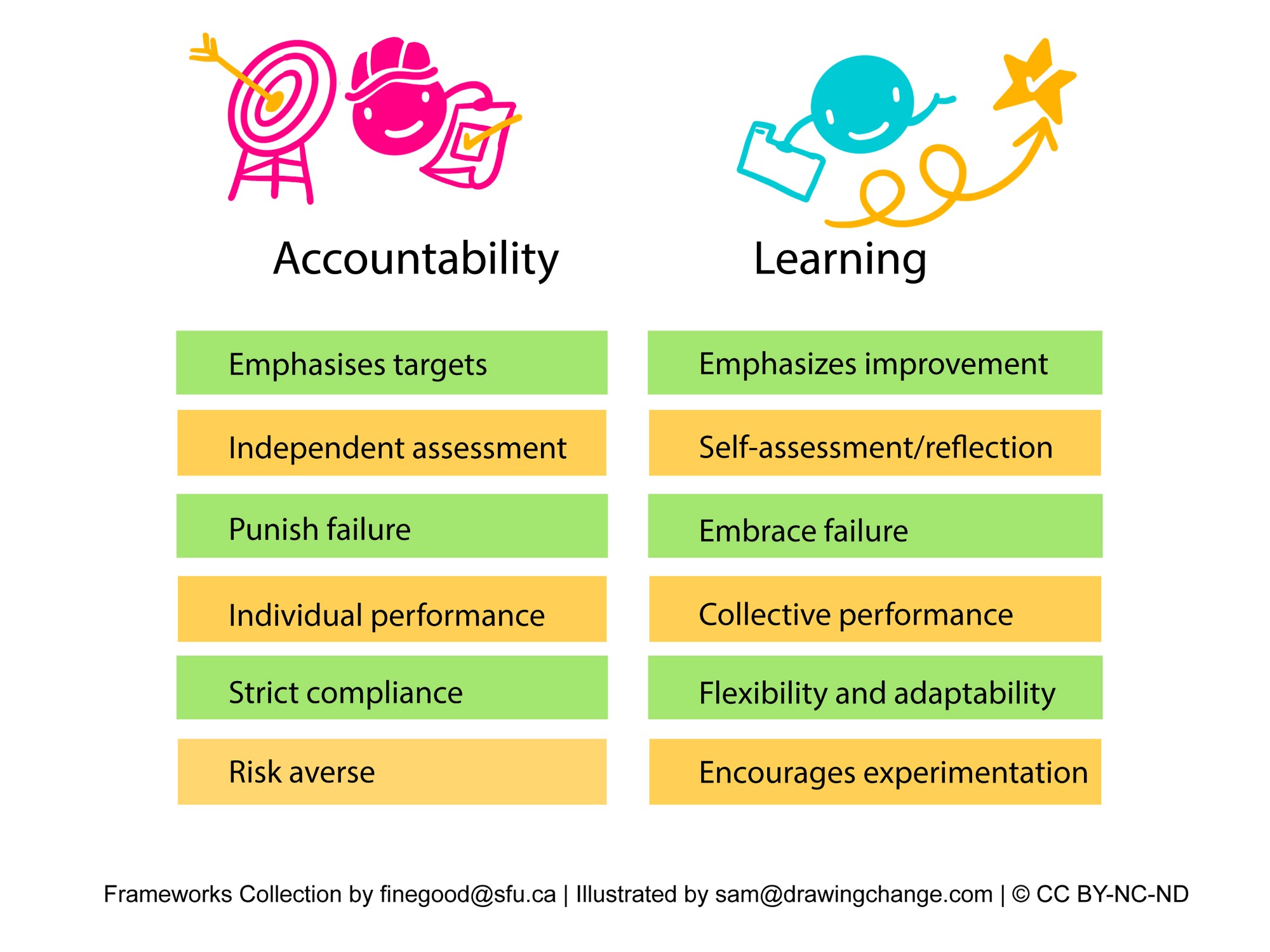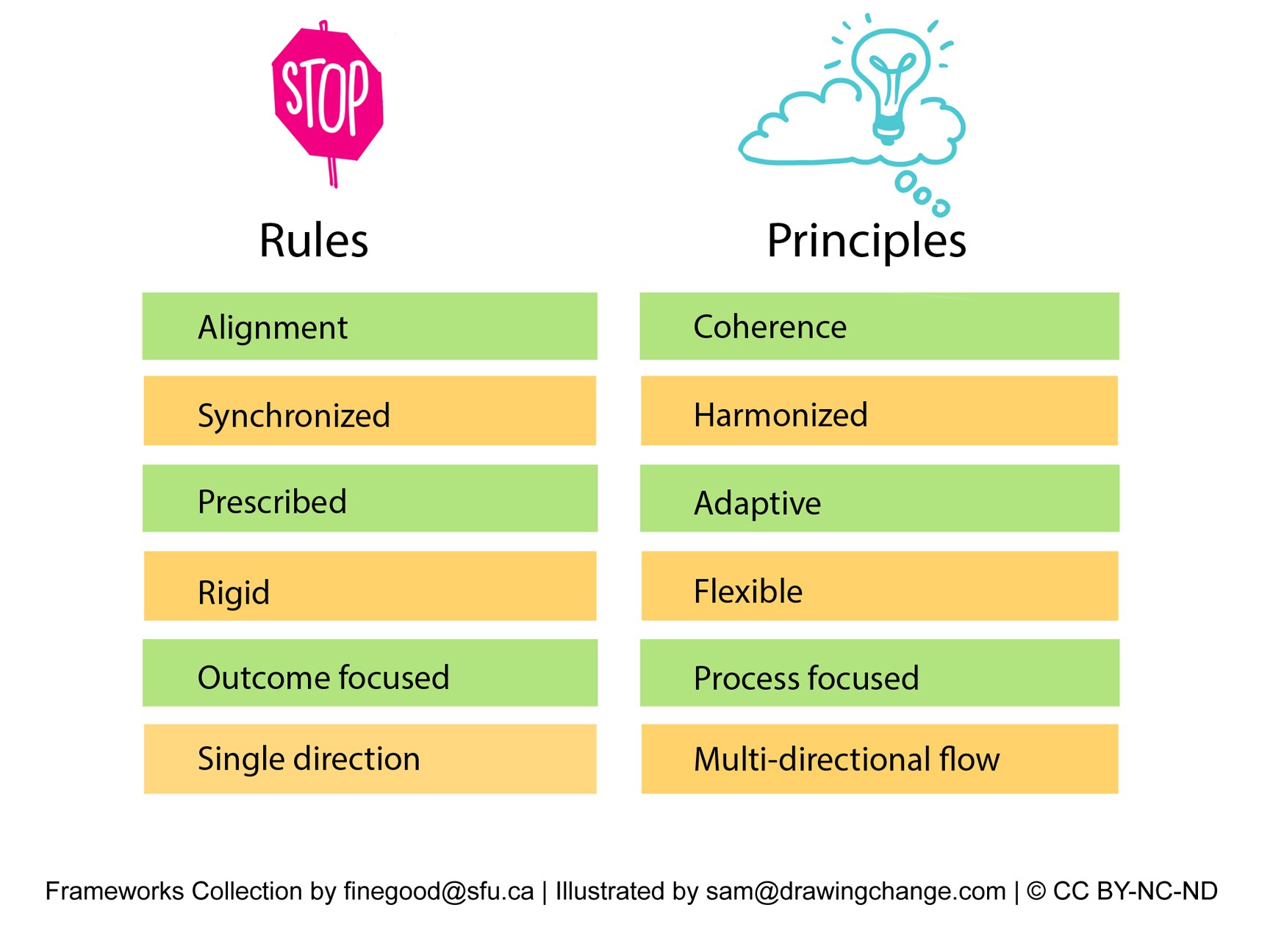Paradigm Shifts
The frameworks in the section on unpacking complexity point to the importance of our mental models, the paradigms under which we operate, our deeply held beliefs. This section suggests a series of paradigm shifts needed when redesigning systems to function in complexity. When systems are just complicated (predictable, controllable, designable) then transactional systems that align processes and hold people to account can work. But when a system is complex (unpredictable, self-organizing, emergent) we need to build relationships, learning systems and create a sense of coherence.





